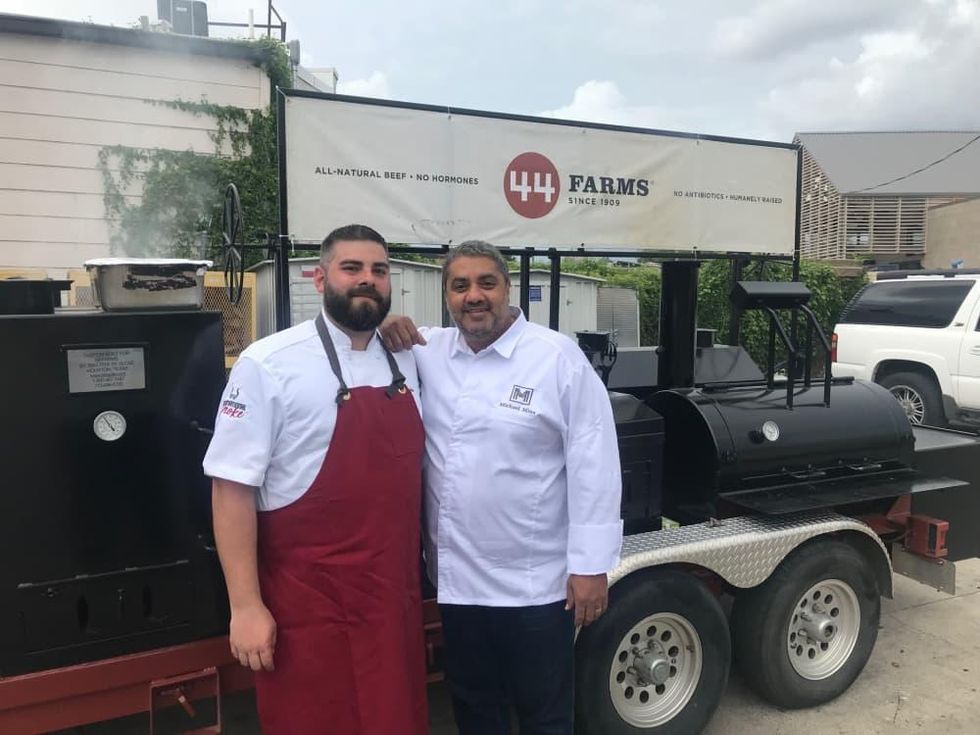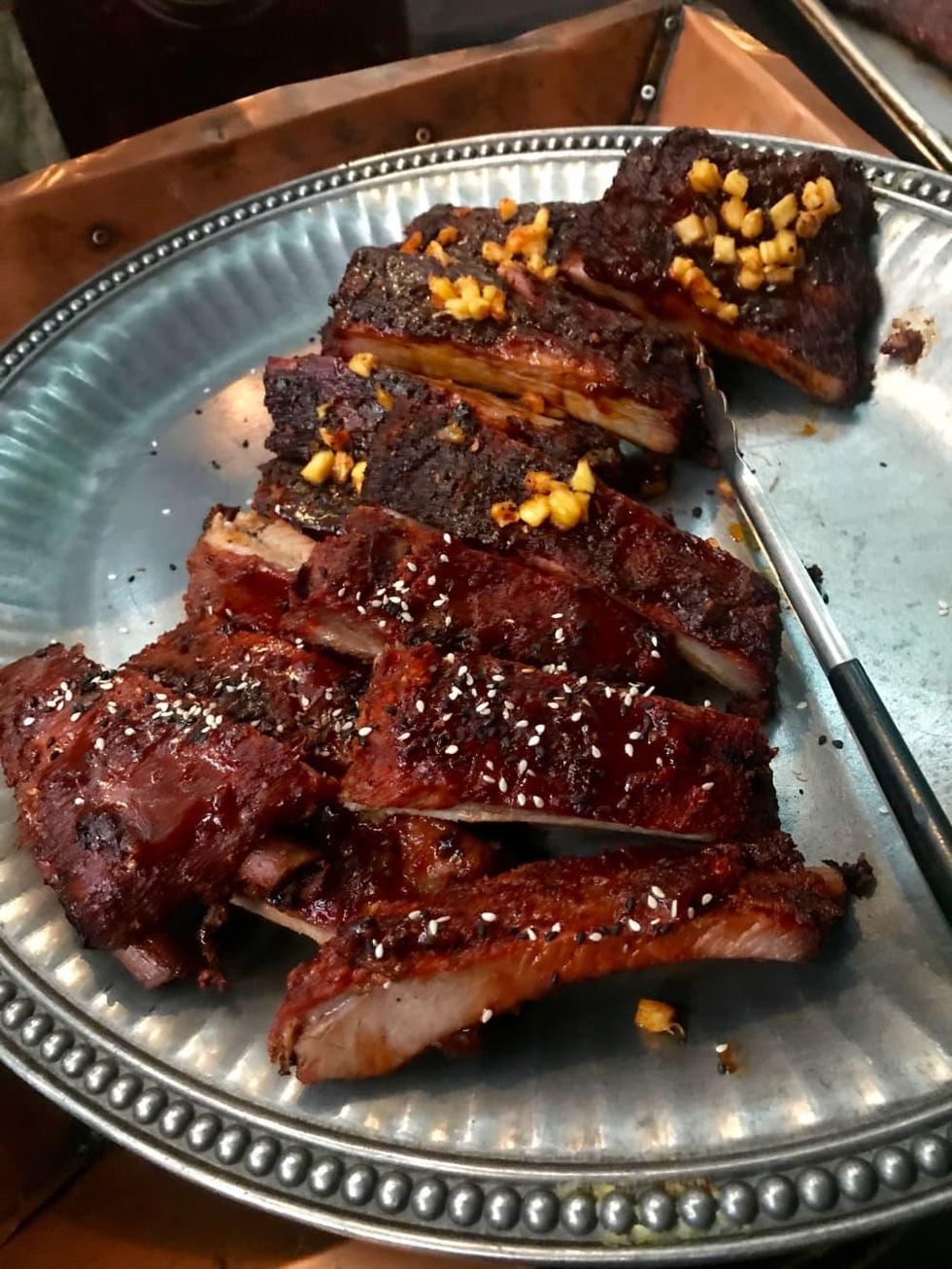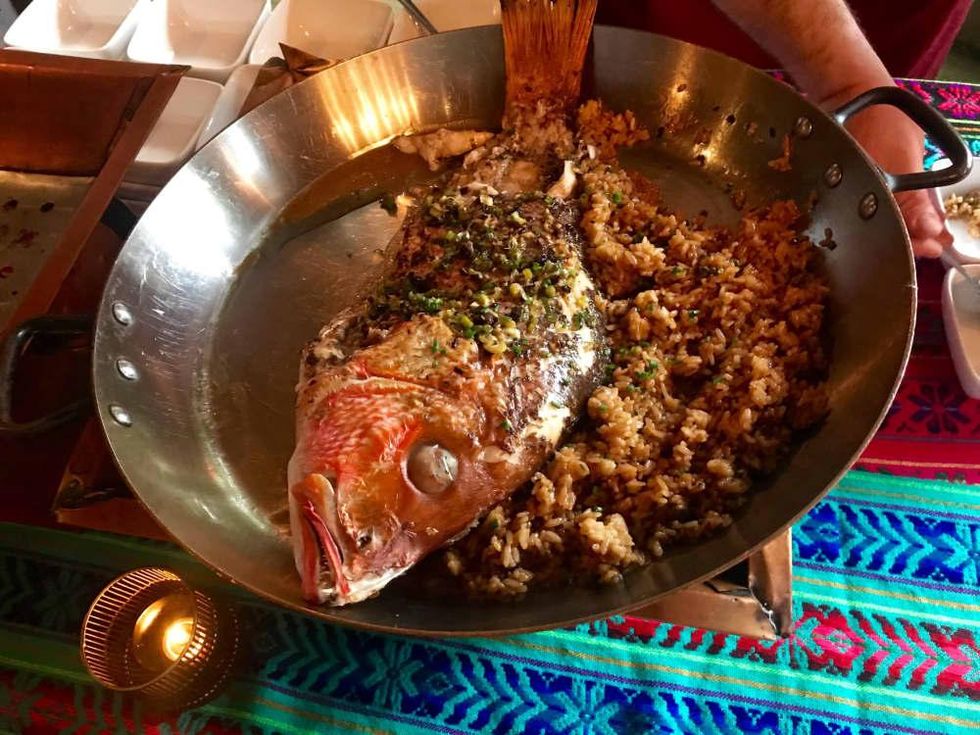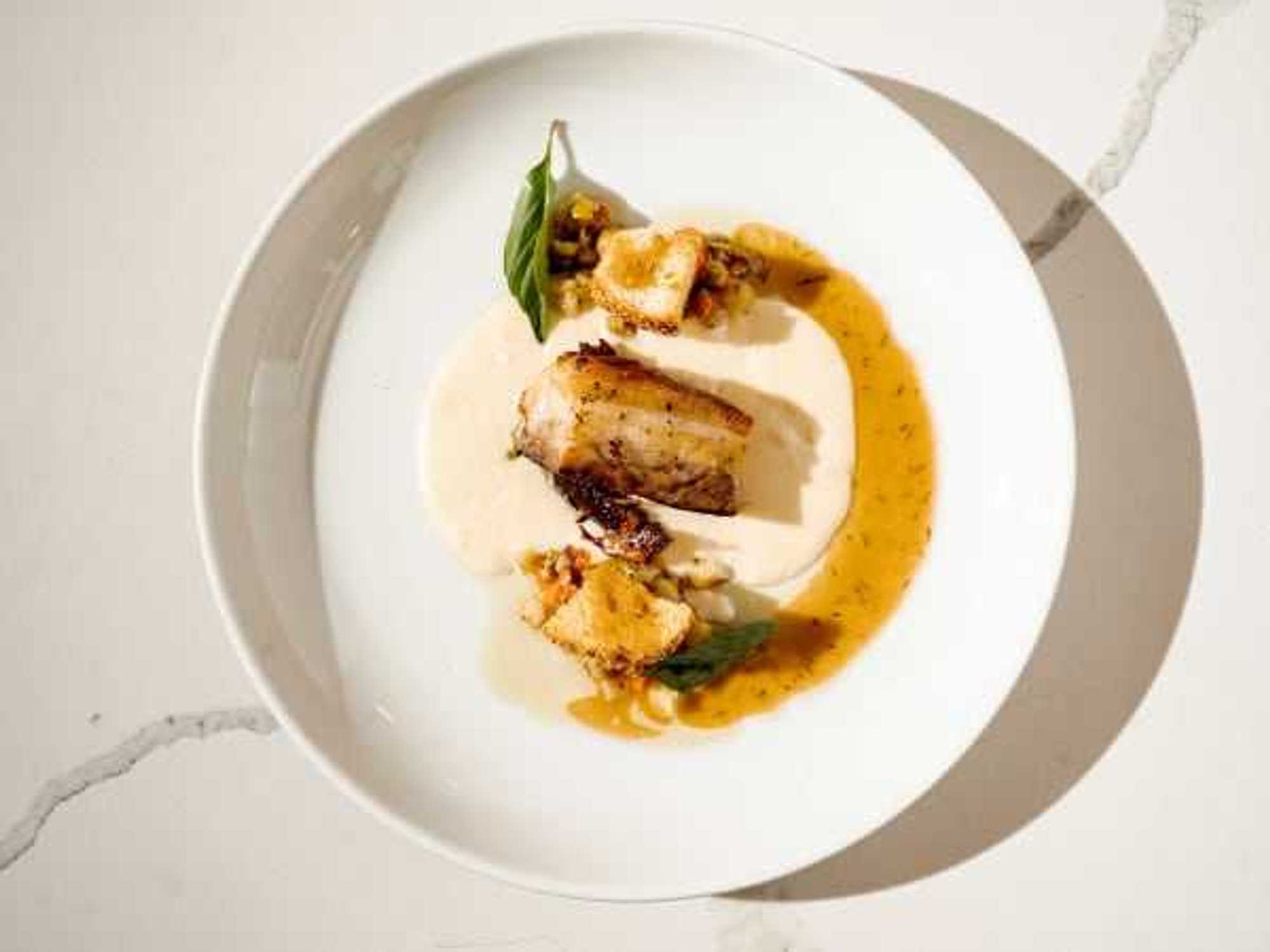Five(ish) Questions with Michael Mina
Celebrity chef dishes on exciting new internationally themed barbecue restaurant coming to Houston
If anyone had doubts about Houstonians’ level of excitement for International Smoke — the new restaurant devoted to global barbecue created by celebrity chef Michael Mina and best-selling cookbook author Ayesha Curry — the sold-out crowd of foodies and media types who filled Hugo’s for May 20th’s preview pop-up should have put that to rest.
Any why not? Even the definition of what constitutes “Texas barbecue” has been expanded in recent years as a new generation of pitmasters at restaurants like Blood Bros. BBQ, El Burro and the Bull, and Feges BBQ utilze the flavors they’re eating at restaurants around town or grew up with into their dishes. In Austin, restaurants like Kemuri Tatsu-ya and Loro are utilizing Japanese flavors. Nationally, David Chang’s barbecue-themed episode of his Netflix series Ugly Delicious argues for a more expansive definition of barbecue.
All of which sets the stage for International Smoke, which offers dishes inspired by the ways cultures around the world utilize live fire cooking to create flavor. Mina has tapped E.J. Miller to serve as the restaurant’s executive chef. Miller earned a CultureMap Tastemaker Awards Rising Star Chef of the Year nomination for his work at Riel, and his resume also includes SaltAir Seafood Kitchen, Down House, and others.
Look for the restaurant to open in CityCentre shortly after July 4. Curry, who is preparing to give birth to her third child, won’t be in town for the opening, but Mina promises she’ll visit as soon as she can travel. Miller notes that she visited Houston last week to get a look at the space and watch her husband, Mario Kart enthusiast Steph Curry, compete against the Houston Rockets in Game 2 of the Western Conference Finals.
CultureMap spoke to Mina and Miller on May 20 just prior to the pop-up.
CultureMap: How do you describe International Smoke?
Michael Mina: Literally, the name tries to say exactly what it is. In America, people have a real distinct idea of what the word ‘barbecue’ means. Around the world, a lot of it is about grilling, it’s live fire cooking.
That’s what International Smoke is really about. Being able to say we want to take something as fun as Korean barbecue and put some culinary behind it that we want to do, and that can turn into short rib and still create that Korean barbecue flavor out of it. Or just go straight up binchotan Japanese item right off a binchotan grill. Not going to put it into a box, but try to stay true to what the item is all about [and] use ingredients from that area.
We have very little American barbecue on the menu. When you read the menu, we have St. Louis ribs and burnt ends in our mac and cheese and that’s about it.
CM: Why did you decide to open in Houston?
MM: Diversity. We knew targeted locations where we wanted to go, markets we wanted to be in. Definitely was the diversity of the people that live here, because that’s what this menu is all about. The concept of the restaurant is based off that. Obviously, knowing that it’s a market we wanted to be in. We have other restaurants in a lot of cities. With International Smoke, it’s been really fun to say, what cities do we want to go to?
A lot of [our restaurants] are partnerships with hotels and casinos. A lot of the time, we’re not deciding where we want to go. If Four Seasons wants us to open in Baltimore, we’ll open in Baltimore, because we have a long relationship with the Four Seasons. International Smoke is one we solely own and have all the control.
CM: What are your impressions of Houston’s dining scene?
MM: It’s always so cool to see what’s going on with these different cities where you have all the neighborhoods. You know a city is starting to get really good when you have serious chefs in neighborhoods cooking; they’ve put together a 100-seat restaurant or an 80-seat restaurant or a 20-seat restaurant or whatever, but it’s in a neighborhood and you’re starting to draw into all those neighborhoods.
In a city like this, you’re obviously going to have bigger restaurants . . . but when those [smaller] restaurants start filling out the food scene and get credibility around the country, which I would say is starting to happen, there starts to be a little different energy.
CM: E.J., sometimes Houstonians can be a little skeptical of out of town operators. What should people know about this restaurant?
E.J. Miller: There’s Houstonians in the kitchen. It’s me, my executive sous chef, Chris Bosch, who was over at Riel for a little bit, he was at Underbelly, he was at Uchi forever. We’re Texan boys in there.
CM: What do you think it is about this moment in time that people seem to be willing to broaden their understanding of what they consider ‘barbecue?’
MM: I just think it’s because people are broadening so much of what they think about food. Think about it, people would almost say that Nobu invented sushi in the United States, because it exploded around the time Nobu really exploded. The only reason I bring up sushi is because the people I used to see in the Aqua dining room in 1991 — I couldn’t give away tuna tartare. They’re like I won’t eat raw fish. Three years later they’re addicted to sushi.
Things have come so far and so quickly in the typical fashion of this country. I think people are so focused on their diet; they’re much more in tune with what they’re eating. I think when people start to really understand that grilling food is a nice way to eat. It’s a lot of flavors, spices, I’m Middle Eastern, so all those flavors and spices and things of that nature on a grilled piece of fish is pretty delicious, and that’s barbecue.
CM: Do you have a favorite dish on the menu?
MM: I would probably say the Vietnamese pork chop. It’s just your traditional Vietnamese grilled pork done in a brine. We tried to take some of those classic items and expand them into more refinement to fit into the restaurant. And probably the wood-fired shellfish. We do a togarashi and white miso butter that goes on it and fire it in a wood-fired oven. You get a little of that sweet and spice.
---
Portions of this interview have been edited for length and clarity



